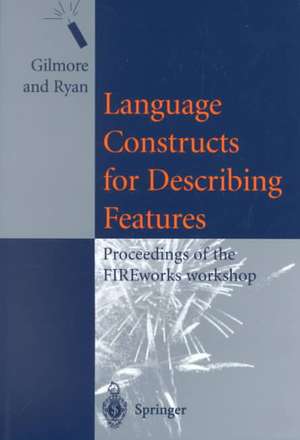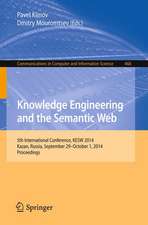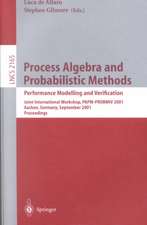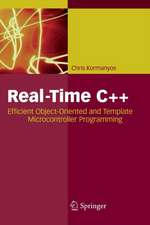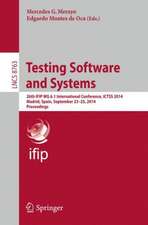Language Constructs for Describing Features: Proceedings of the FIREworks workshop
Editat de Stephen Gilmore, Mark Ryanen Limba Engleză Paperback – 27 noi 2000
Preț: 330.75 lei
Preț vechi: 413.44 lei
-20% Nou
Puncte Express: 496
Preț estimativ în valută:
63.29€ • 66.26$ • 52.37£
63.29€ • 66.26$ • 52.37£
Carte tipărită la comandă
Livrare economică 07-21 aprilie
Preluare comenzi: 021 569.72.76
Specificații
ISBN-13: 9781852333928
ISBN-10: 1852333928
Pagini: 244
Ilustrații: X, 233 p. 10 illus.
Dimensiuni: 155 x 235 x 13 mm
Greutate: 0.37 kg
Ediția:1st Edition.
Editura: SPRINGER LONDON
Colecția Springer
Locul publicării:London, United Kingdom
ISBN-10: 1852333928
Pagini: 244
Ilustrații: X, 233 p. 10 illus.
Dimensiuni: 155 x 235 x 13 mm
Greutate: 0.37 kg
Ediția:1st Edition.
Editura: SPRINGER LONDON
Colecția Springer
Locul publicării:London, United Kingdom
Public țintă
ResearchCuprins
Structuring telecommunications features.- Feature-oriented description, formal methods, and DFC.- Use case maps as a feature description notation.- An incremental method for the design of feature-oriented systems.- Abstraction and refinement of features.- Proving feature non-interaction with Alternating-Time Temporal Logic.- Algebraic treatment of feature-oriented systems.- The PEPA feature construct.- A heuristic algorithm to detect feature interactions in requirements.- Defining features for CSP: Reflections on the feature interaction contest.- Stack service model.- The declarative language STR (State Transition Rule).- Modular feature integration and validation in a synchronous context.
